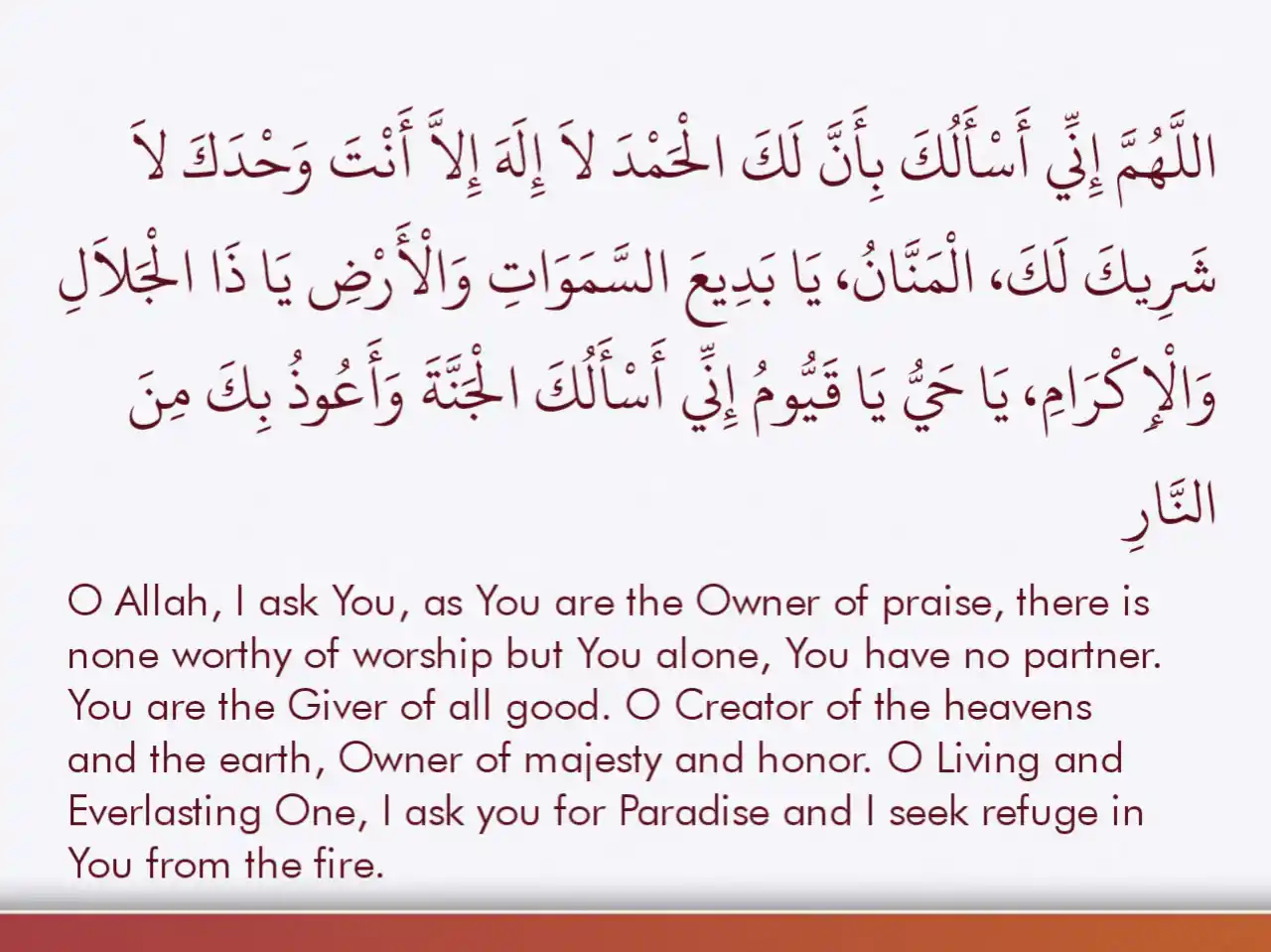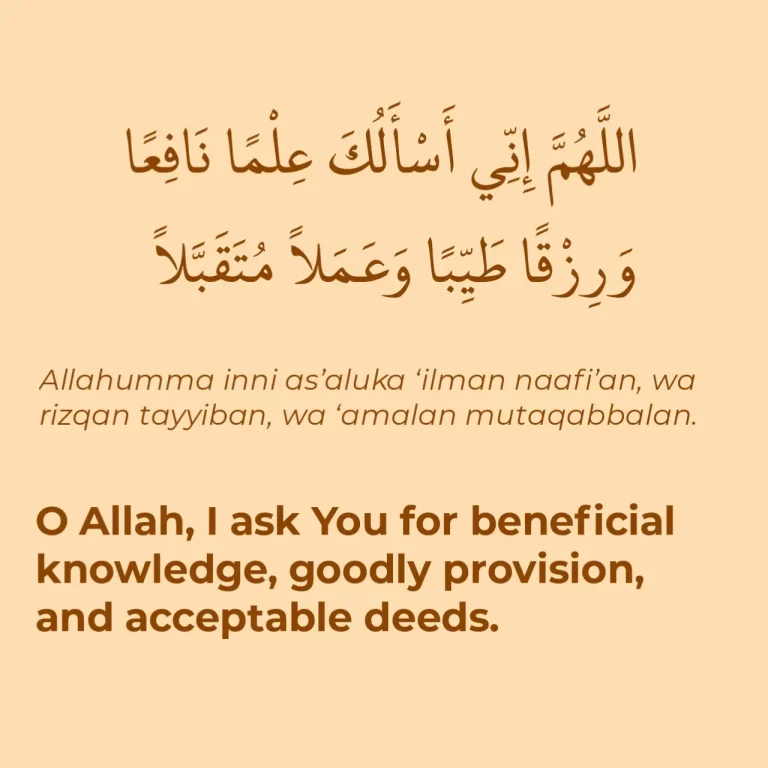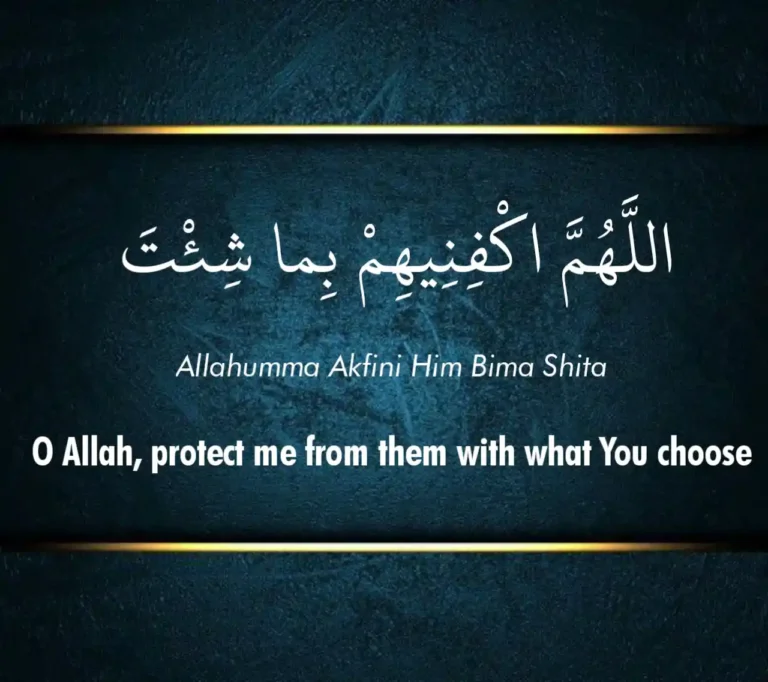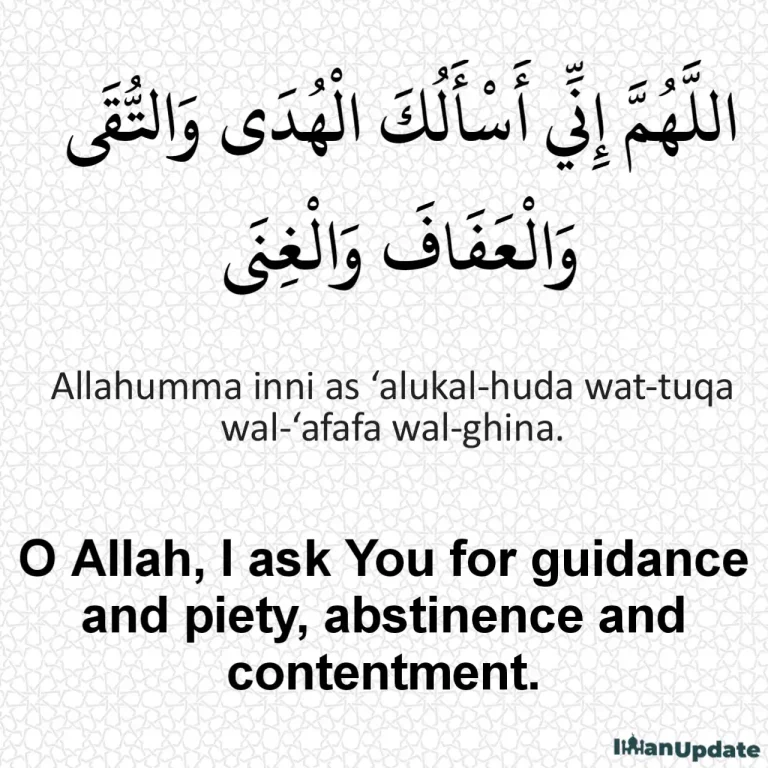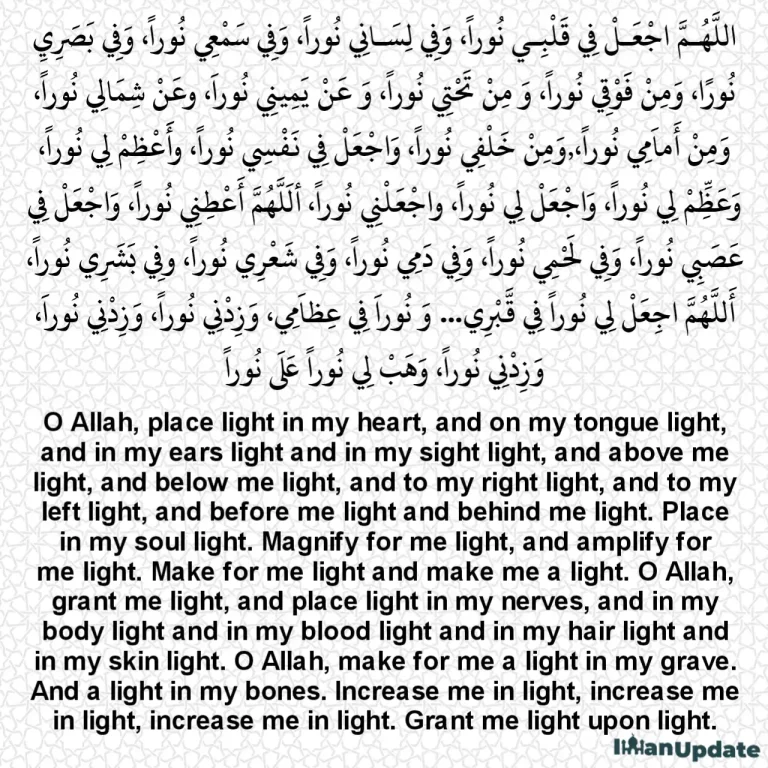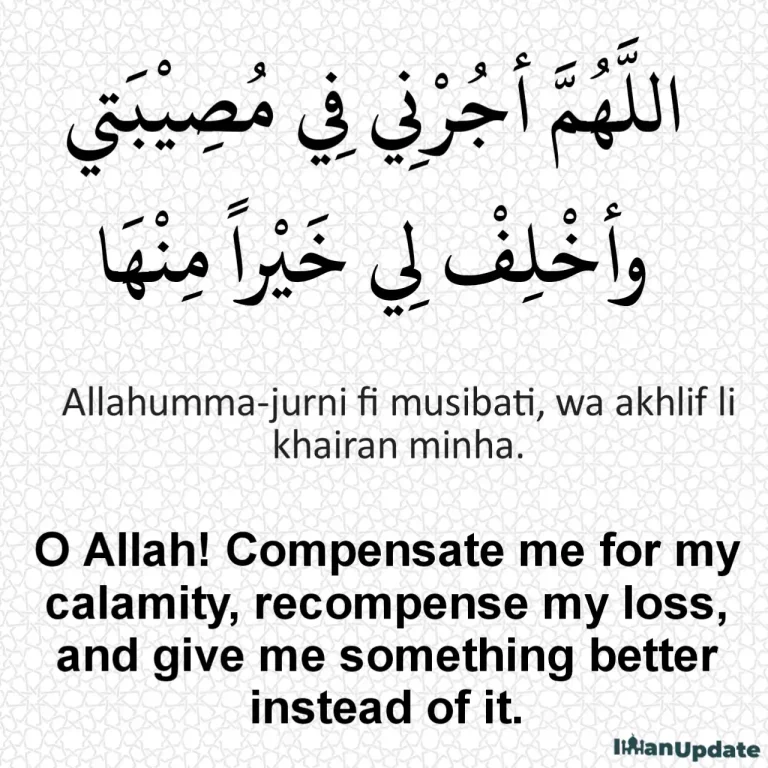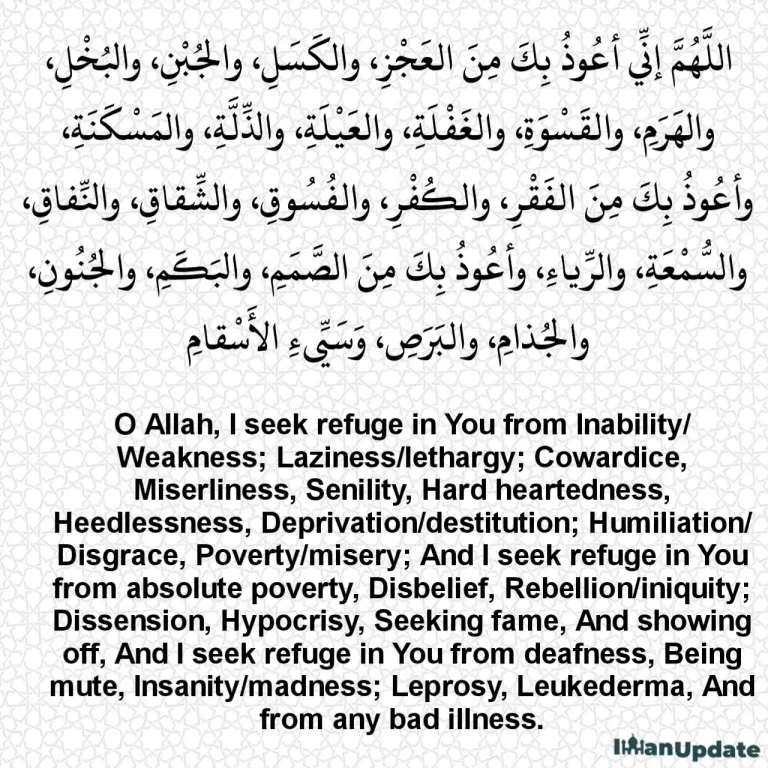Allahumma Inni As Aluka Bi Anni Lakal Hamdu Meaning And Arabic Text
Advertisements
Allahumma inni as aluka bi anni lakal hamdu is extremely special Dua. By making this supplication to Allah by His Greatest Name, your Dua will be answered as reported from our beloved prophet SAW.
The article will help you understand and learn the meaning of this powerful Dua.
It is one of the invocations after the final Tashahhud and before ending the prayer and you can recite it when making Dua to Allah.
Allahumma Inni As Aluka Bi Anni Lakal Hamdu Meaning In English
Allahumma inni as aluka bi anni lakal hamd means O Allah, I ask You, as You are the Owner of praise, there is none worthy of worship but You alone, You have no partner. You are the Giver of all good. O Creator of the heavens and the earth, Owner of majesty and honor. O Living and Everlasting One, I ask you for Paradise and I seek refuge in You from the fire.
Allahumma Inni As Aluka Bi Anni Lakal Hamdu In Arabic
Allahumma inni as aluka bi anni lakal hamd in Arabic is;
Advertisements
اللَّهُمَّ إِنِّي أَسْأَلُكَ بِأَنَّ لَكَ الْحَمْدَ لاَ إِلَهَ إِلاَّ أَنْتَ وَحْدَكَ لاَ شَرِيكَ لَكَ، الْمَنَّانُ، يَا بَدِيعَ السَّمَوَاتِ وَالْأَرْضِ يَا ذَا الْجَلاَلِ وَالْإِكْرَامِ، يَا حَيُّ يَا قَيُّومُ إِنِّي أَسْأَلُكَ الْجَنَّةَ وَأَعُوذُ بِكَ مِنَ النَّارِ
Transliteration
The transliteration of this supplication is Allaahumma ‘innee ‘as’aluka bi’anna lakal-hamda laa ‘ilaaha ‘illaa ‘Anta, wahdaka laa shareeka laka, Al-Mannaanu, yaa Badee’as-samaawaati wal’ardhi yaa Thal-Jalaali wal-‘Ikraam, yaa Hayyu yaa Qayyoomu ‘innee ‘as’alukal-jannata wa ‘a’oothu bika minan-naar.
Hadith Related To This Dua
Narrated Anas ibn Malik: I was sitting with the Messenger of Allah (SAW) and a man was offering prayer. He then made supplication:
O Allah, I ask Thee by virtue of the fact that praise is due to Thee, there is no deity but Thou, Who showest favour and beneficence, the Originator of the Heavens and the earth, O Lord of Majesty and Splendour, O Living One, O Eternal One.
The Prophet (SAW) then said: He has supplicated Allah using His Greatest Name, when supplicated by this name, He answers, and when asked by this name He gives.
Sunan Abi Dawud 1495
Rasulullah, sallallahu alayhi wasallam heard a man saying this dua and then at the end of the hadith, the prophet SAW said; by the One in whose hand is my soul he called upon Allah by his greatest name, which if He is called by He responds and if He is asked by it He gives.
We all know how he is the truth, for he is Assadiq, he is the one whose every single word is the truth and honesty, so he’s swearing while he does not need to swear.
The Dua started by the man asking Allah Azzawajal that all praises are due to Allah and all the gratitude belongs to Him.
Advertisements
La ilaha illah, you noticed that many of the duaa start with the kalima of tawheed. My brothers and sisters the most important thing we have in our life is the towhead of Allah azzawajal. Without la Ilaha Illallah we are worth nothing.
So the man starting the dua by saying no one worthy of worship other than Allah, He is the only one that deserves to be worshipped.
And then he said Al Manan, one of the names of Allah Azzawajal is Al Manan. By the way, the name of Allah Al Manan is not mentioned in the Quran and it’s mentioned in this authentic hadith.
Al Mannan is the One who gives abundantly, the One Who gives graciously, the One Who gives without you asking, Subhan Allah.
My brothers and sisters, if Allah only gives us what we ask for we are in trouble, I repeat if Allah only gives us what we ask for we are really in trouble.
Allah bless us day and night and all the time. He gives us things that are so beneficial to us and keeps away anything that does harmful to us.
Like for example, if you get something that we do on a daily basis. If you get a plate, you want to eat your lunch or your dinner. You get your spoon or you got a piece of bread and you took a morsel of bread and you put it in your mouth you said bismillah and you ate it.
When was the last time you said Ya Allah make this morsel go down into my body digested without any harm, Ya Allah give me the benefit of it and take away the harm of it?
We never say these things, and these things always take place. SubhanAllah, this is just an example of how much Allah gives us without asking.
RELATED DUAS:
- Allahumma Inni As’aluka Min Fadlik Meaning
- Allahumma Akfini Him Bima Shita Arabic And Meaning
Badee’as-samaawaati wal’ardhi means Allah is the originator of the heavens and the earth.
Everything that’s in the heavens and everything that is on the earth was created by Allah. Not only created by Allah, it was created from scratch.
Allah didn’t saw something and duplicated, no He originated the heavens and the earth and they’re running with perfection with complete structure and harmony only by the will of Allah.
Zal-Jalaali wal-‘Ikraam means You are the owner, You are the Lord of majesty and glory. Ya Allah, You are the Most Generous, the All Generous, the One Who gives without any questions, without any limit.
Ya Hayyu Ya Qayyum means Allah Subhanahu Wata’ala is the Ever-living, the Eternal. Al Qayyum, Allah does not need any help from anybody while every single creation needs His help.
Allah is beyond any deficiency, He does not need to sleep, eat, or drink.
It is mentioned in some Hadith that the prophet SAW said the best name of Allah or the greatest name of Allah is mentioned in three surah in the Quran.
We are asking Allah Azzawajal in this Dua by his six greatest Names.
- Al Mannan,
- Badee’as-samaawaati wal’ardhi,
- Zaal-Jalaali,
- Ikraam,
- Al Hayy and
- Al Qayyum.
We are making all this introduction by praising Allah with with these amazing names and amazing attributes.
Then after that, you make your request for example:
Ya Allah grant me a good job that is pleasing to you, Ya Allah grant me a good spouse that will make my heart and my life in this dunya happy, Ya Allah blessed me with children that will be the coolness of my eyes that would be a reason for me to enter Jannah.
Benefits
Let’s break down this beautiful dua (supplication) using a listicle format to explore its details and meanings:
1. Invocation to Allah: The dua begins with a direct address to Allah, the One and Only God, acknowledging His supreme position and authority.
2. Emphasis on Allah’s Praise: “O Allah, I ask You, as You are the Owner of praise” – This part of the dua emphasizes that Allah is the ultimate source of praise and worship, deserving of all glory and recognition.
3. Assertion of Allah’s Oneness: “There is none worthy of worship but You alone, You have no partner” – This highlights the core concept of Tawheed (the belief in the oneness of God) in Islam, stating that there is no deity except Allah and that He has no associates or partners.
4. Acknowledgment of Allah’s Generosity: “You are the Giver of all good” – This portion acknowledges Allah as the bestower of all goodness and blessings in our lives.
5. Recognition of Allah’s Creative Power: “O Creator of the heavens and the earth” – This part acknowledges Allah as the originator and sustainer of the entire universe.
6. Emphasis on Allah’s Majesty and Honor: “Owner of majesty and honor” – Here, the dua acknowledges Allah’s regal and honorable nature, highlighting His splendor and magnificence.
7. Appeal to the Living and Everlasting One: “O Living and Everlasting One” – This segment recognizes Allah as the Living and Eternal Being, highlighting His eternality and ability to answer our prayers.
8. Supplication for Paradise: “I ask you for Paradise” – In this part, the supplicant expresses the desire to be granted admission to Paradise, which is the ultimate reward for the believers in Islam.
9. Seeking Refuge from the Fire: “I seek refuge in You from the fire” – In contrast, the supplicant seeks protection from the Hellfire, acknowledging its dreadful consequences and praying for salvation from it.
This dua is a heartfelt and profound expression of faith, gratitude, and supplication to Allah, emphasizing His divine attributes, Oneness, and the supplicant’s longing for Paradise while seeking refuge from the torment of the Hellfire.
Advertisements

